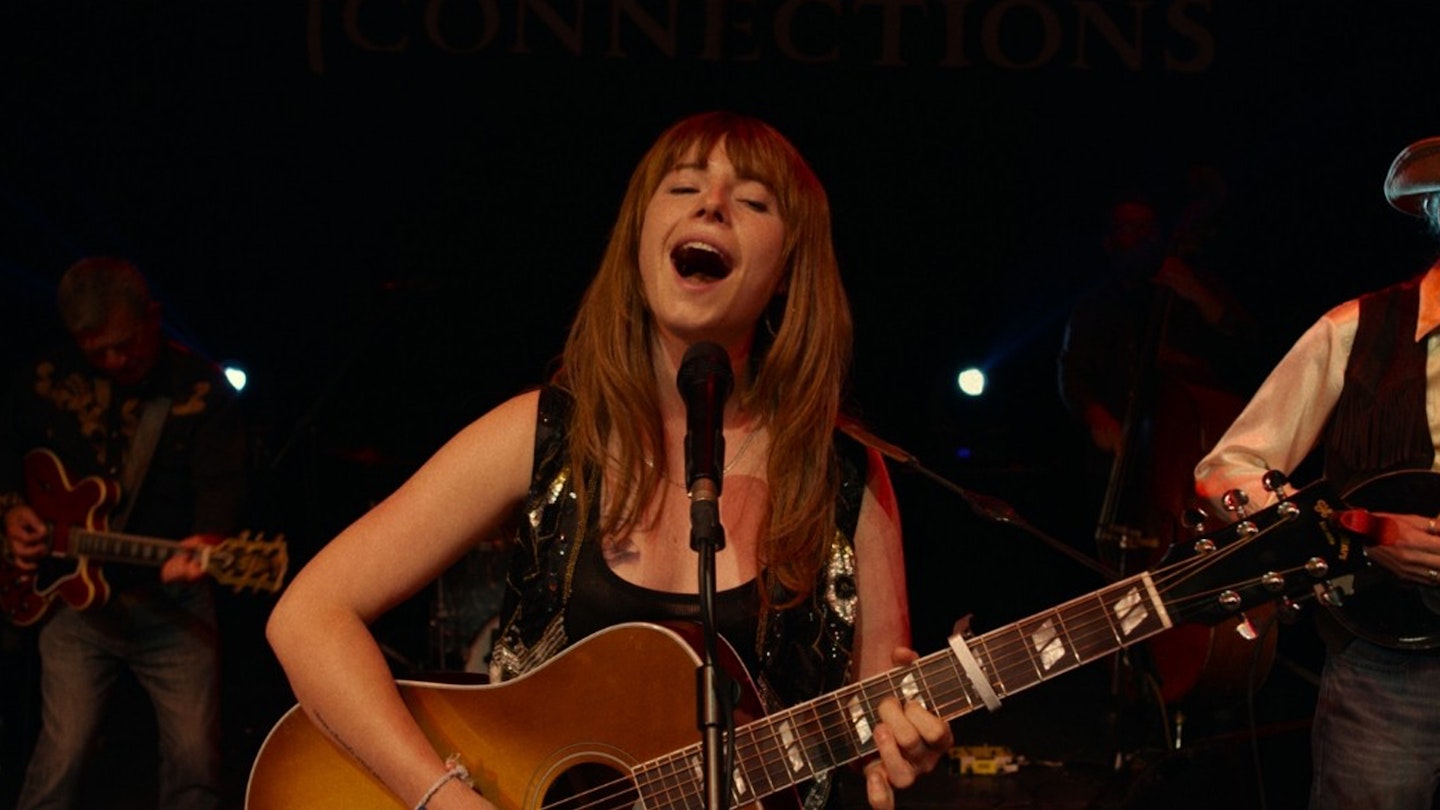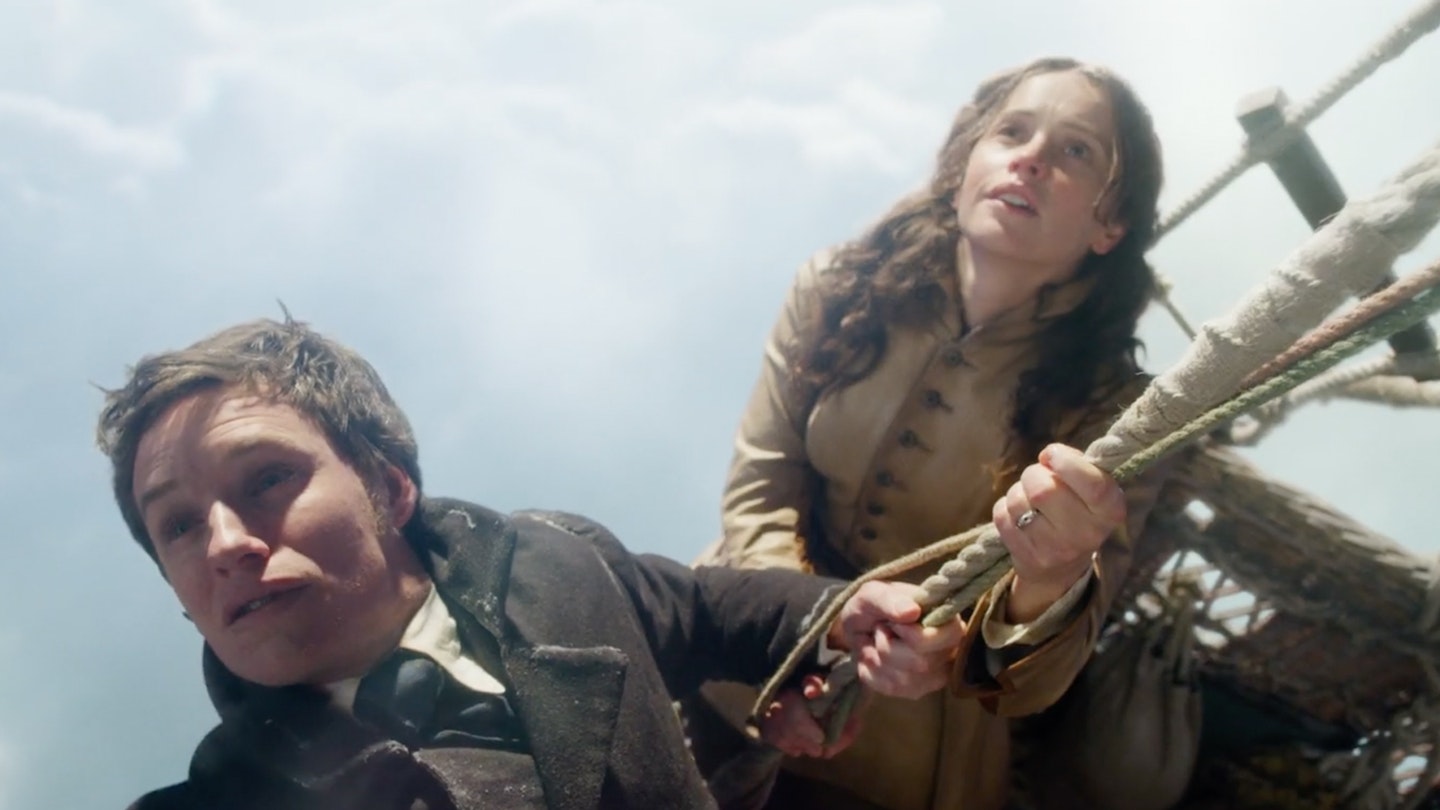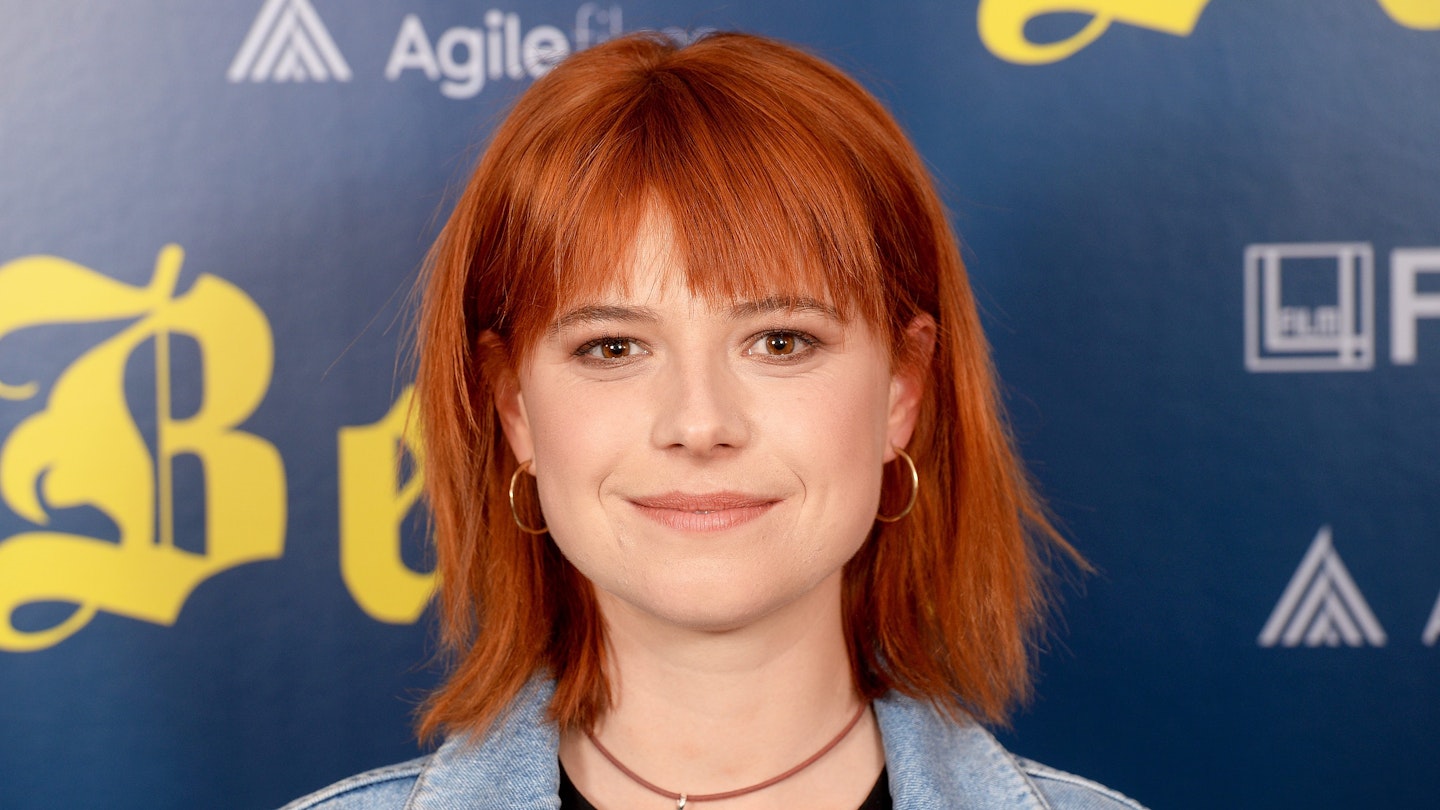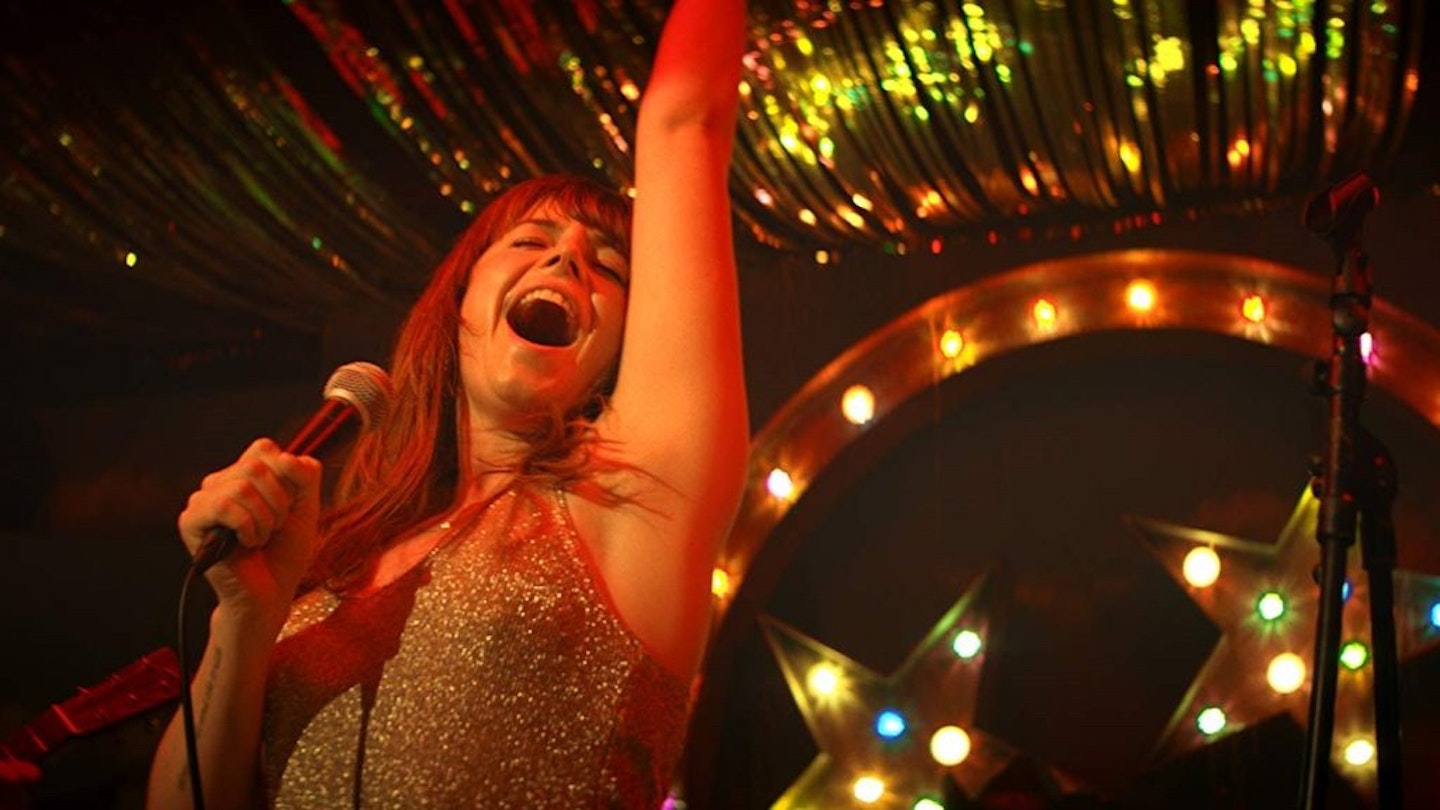After last year’s feature film debut in the bleak psychological thriller Beast, there is little doubt that Jessie Buckley is more than just another new actor with star potential. She is the real deal, capable of a depth of dramatic delivery that actors stretch their entire careers for. The question is this, though: is the material worthy of Jessie Buckley? Wild Rose is not an entirely definitive yes, but it comes pretty damn close.
Buckley is Rose-Lynn, a gobby, impulsive, working-class country singer from Glasgow, who we meet in the hours before being released from prison, white plastic tag tightly gripping the ankle beneath her white cowboy boots. “You’re gonna be the next Dolly Parton,” shouts another prisoner gleefully as Rose-Lynn leaves, fist-raised, for what may or may not be the last time, her dreams of a life in Nashville seeming nigh-on impossible.
Narrative pivots transform the film from heart-warming Brit flick to something with more bite.
Her first stop is for a frenetic bunk-up in a field with an on-off boyfriend. This makes her second, more reluctant stop more shocking, revealing the true tension at the heart of the film: at the home of her mother (Julie Walters), who has been caring for Rose-Lynn’s two young children during her stint in prison. The elder child, her daughter, is clearly damaged and dented, barely able to lift her eyes to recognise the return of her mother.
When Rose-Lynn lands a job as a daily woman for middle-class Susannah (Sophie Okonedo), who feels compelled to help her realise her dream after hearing her sing, you sense that you know this film. You’ve seen this formula. The altruistic, well-meaning (verging-on-patronising) woman with money and time on her hands attempting to save the girl in need by offering a path to that life-changing opportunity. The fractured relationship with the sharp-tongued matriarch who has grafted entirely selflessly for decades and views ambition as self-centredness.
But just when you’re sure of foot, you’re tipped off-balance with narrative pivots that transform the film from heart-warming Brit flick to something with considerably more bite and substance. At first gingerly, and then with real intent, the film puts an elbow into the hot waters of motherhood, of female sacrifice, of what becomes of our sense of self and right to personal nourishment. There, the film — and specifically a beautifully paired Walters and Buckley — shines, swelling around the issues it kneads without hitting upon any easy answers. For the journey, it turns out, is not one of the 3,900 miles from Glasgow to Nashville, but the distance between a mother and daughter, and for Rose-Lynn, the journey to find herself.



